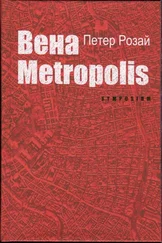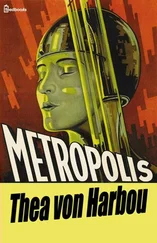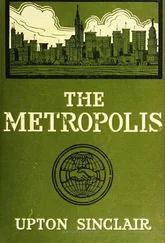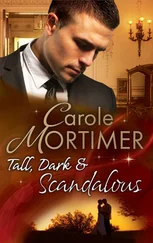Now she was noticing that all the food from lunch was gone—the rest of the cake, the bread, the cheese. So Mother was probably trying to take food to Father. These moments were the worst, when Mother became confused and thought Father was working at the train station and she needed to take food to him. Thea prayed Mother hadn’t gone farther. Once Thea had caught her trying to go down to the subway stop at the end of the street. The stop had been closed off years ago, and Thea had to tell a passing policeman that her mother was just visiting from the country. She always worried about seeing that policeman again.
She had to find Mother among all the Sunday travelers waiting in lines and consulting schedules and standing around with their bags. Mother would be wearing her shabby old coat—she still had the same one from before the war—with a red print scarf over her head. Thea could imagine her so keenly it seemed wrong that she didn’t spot her anywhere, even when she stood on a bench to get a better look. She tried calling for Mother, but her voice disappeared among all the other voices echoing in the soaring room. Finally, she was forced to snag one of the porters.
“Excuse me, have you seen my mother?” Thea’s voice was shaking, but she managed to keep the tone light. “I seem to have misplaced her. She’s a few inches shorter than I am, wearing a red kerchief, carrying a bundle?”
The young man’s brow furrowed as she spoke. “I might have. I did see a woman like that. But it’s been some thirty minutes, maybe. Did you lose her just now? I could tell the guards to look—”
“Thank you!” Thea said quickly, disappearing through a crowd.
Thirty minutes!
Maybe Mother had come to her senses and gone home.
When Thea rounded the corner and her apartment came into view, so did a cluster of neighbors—Mrs. Weis with her youngest on her hip, old Miss Mueller in a faded housedress, one of the bachelor twin brothers—Fritz or Franz? And there was a sturdy, imposing police car parked on the street.
“There she is!” shouted Miss Mueller.
Thea’s heart sped. “What’s the matter?”
“A policeman just brought your mother home, dear,” Mrs. Weis said. “He’s still upstairs with her, and I think…she’s—”
“No!” Thea said, as if she could stop it.
“She’s gathering her things,” Mrs. Weis finished. “I knew your mother took your father’s death hard, but I never knew she was bound-sick. Why didn’t you say something?”
Thea swallowed hard. Why didn’t she say something? As if she hadn’t told a thousand lies just to keep it secret. She hadn’t even wanted Father Gruneman to know, and at least she trusted him not to report her mother to the authorities. It was so easy for Mrs. Weis to say this now, when a policeman was already here. She’d heard people whisper about bound-sickness, shake their heads over it—at church, at the Telephone Club, even waiting in line at the butcher. I don’t know why the rustics ever clung to those horrible rituals. Magic going wrong even after someone dies? So tragic.
“They could help her, you know,” Fritz-or-Franz said in his haughty accent. He’d been rich once but had lost his money right after the war, like a lot of people who’d had extra in the bank. “They have clinics, the government. You don’t have to pay a thing.”
She worried every day about Mother being taken to one of those clinics. “She—she doesn’t want—” No. Why bother explaining to him? If Father Gruneman was right about the officials taking Mother’s memories, she couldn’t even speak of such a violation. She broke off and ran up the stairs.
The door to the apartment was open, and a policeman was waiting there, offensive in his mere presence, like a gun in a nursery. He stood with arms crossed, his eyes probing and touching Thea’s life—the mess in her kitchen, the pile of letters from Mother’s friends, and the photographs of Father on the ledge—but they cut to Thea herself as soon as she entered.
“Are you Thea Holder?” the policeman asked.
She nodded.
“I found your mother wandering by the river. Is it true, Miss Holder, that your mother and her husband, Henry Holder, were bound?”
Thea nodded again. Don’t make a scene. He won’t care, and all the neighbors are downstairs….
“I’m sure you are aware that such magic is against the law,” the policeman continued. “Moreover, we have cures nowadays. It isn’t really fair to your mother, to lose her mind over a spell.”
Thea was still nodding. No use saying Mother didn’t want to go. No use begging or pleading. Thea steeled herself. They would take her memories away, and maybe—god, maybe it might even be for the best for Mother to be free of those memories. What kind of life did she have now?
Mother walked out of her bedroom just then, dragging along her traveling bag. Her eyes were angry and lucid. In rare moments, the real Mother was there. “He’s alive,” she said. “I’m sick because he’s alive and I can’t find him.”
“Mrs. Holder, I know you think he is alive. It’s only because the crude spell placed upon you at marriage has corrupted. He is deceased, I assure you, and I’d imagine your daughter has suffered because of your madness. I will take you to the doctor, and everything shall be made right.”
“He is alive. You and your doctors can go to hell!”
“Shh! Shh!” Thea flew to Mother, pulling her back as she took a step closer to the policeman. “Mother, please. She doesn’t mean it, sir.”
The policeman’s eyes narrowed slightly. “Oh, I know she doesn’t mean it.” He was going to get what he wanted. It wasn’t like Thea or her mother could do a damn thing about it.
“Mother, just think, when the spell is broken, it will be like old times with us,” Thea said, trying to smile, although she knew it would never be like old times again.
Mother straightened. “Before I go, let us have a moment to say good-bye.”
“A moment.” The door shut behind the policeman. Thea didn’t hear the footsteps creak any farther, and she would have bet money he was listening at the door.
“I know he is alive!” Mother said, too loudly.
“Well, where is he, then? What can I do about it?”
“Nothing.” Mother took Thea’s hand and squeezed it. “Just know it. Remember it.”
If only Mother were right. Thea used to believe her, but as the years passed, the hope fell away. She thought again of her vision at the Telephone Club: Father waking up in his military uniform. It was scary just to think of it, to allow any hope back in. She took a deep breath. “I will.”
Mother pulled her into an embrace, and Thea soaked up the feel of her, as if this might be the last time.
The tears were coming now. No. No. She battled them off. My good little soldier, she could almost hear her father say. She could almost see him, too, when she held Mother so close. Mother was full of confusion and panic, but also memories—and when Thea let her go, the memories would go with her.
She drew away from the feel of Mother’s coat on her cheek, the smell of her perfume and soap, and opened the door.
“How long will it take to remove the spell?” she asked the policeman.
“It can take a year, I’ve heard, if it is a bad case.” He was already heading down the stairs, glancing back sharply every time Thea’s mother lagged.
“A year? Where will she be? Can I visit her?”
“She will be at the city asylum for magical disorders. I believe visits are frowned upon. They can disrupt the treatment. I’m sure she will be well cared for.” He marched to his car and opened the back door. Thea’s mother looked tenderly at Thea one last time. Then she climbed inside. The door slammed shut, and the car drove away.
Читать дальше












